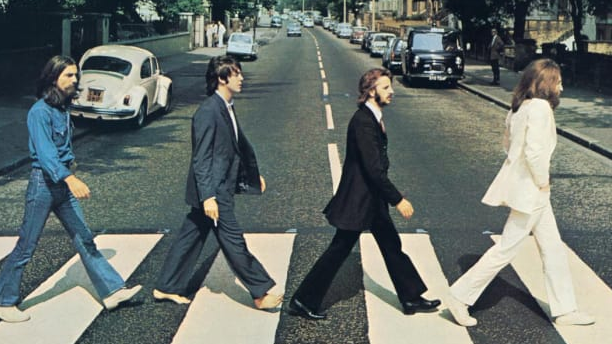The Evolution of Music: 1960s Protest and New Sounds
April 16, 2019
The 1960s were a time of monumental stages through fashion, politics, war and a movement that only was expressed through music.
A number of social influences changed what popular music was and gave birth to the diversity that we experience with music today.
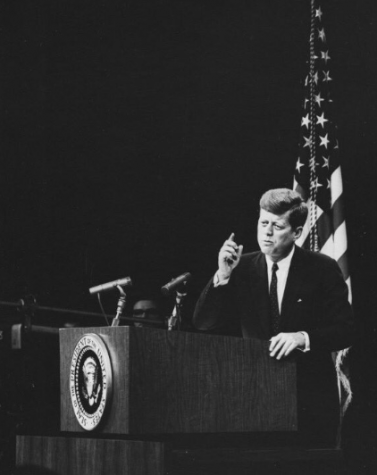
Image Courtesy of @ChasingMoonBk via Twitter
The assassination of President Kennedy, the escalation of the war in Vietnam and the forward-progress of the Civil Rights Movement all greatly impacted the mood of American culture, and the music began to reflect that change.
The “British Invasion” also began around 1963 with the arrival of The Beatles on the music scene and the type of rabid fandom that followed them would change the way people would view and interact with musicians forever.
The “British Invasion” is the name given to the period of time in the early to mid-1960’s, during which many British rock bands and pop artists found mainstream success in the United States and worldwide.
Many of these bands first started by covering American songs and showcasing an American rock ‘n’ roll and R&B influence in their sounds.
As these bands gained popularity, many of them ventured into new music territory and created their own unique styles.
The one band that comes to mind when speaking of the British Invasion is The Beatles, one of the most well known boy bands in history.
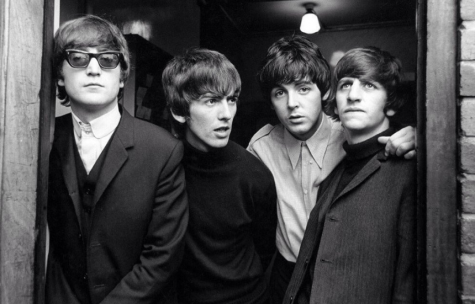
Image Courtesy of: @sgtsmccartney via Twitter
The Beatles dominated worldwide charts and was soon given its own stereotype called “Beatlemania.”
Sophomore Trey Gaidis has been known as a Beatles connoisseur.
“See I grew up with so many different types of music, but one that really stuck with me was The Beatles.” said Gaidis, “I probably listen to them daily, and I just really like the sounds that they can bring into a song and the messages that they were able to convey.”
Some other notable British Invasion acts include The Rolling Stones, The Animals and The Who, some of whom reached comparable success levels to the Beatles but had different influences on music all together.
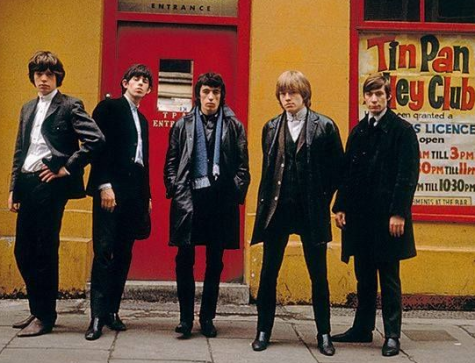
Image Courtesy of @historyinmoment via Twitter
The “Motown Sound” and popular R&B music had a major significance in terms of the Civil Rights movement and integration in American society during the sixties.
Motown started as a Detroit-based record label in the late fifties and early sixties, but it quickly turned into much more as the acts gained popularity worldwide.
Motown records consisted mainly of African-American groups, singers, songwriters and management; their success proved in breaking down the barriers of segregation and granted African-American performers and musicians a chance to reappropriate much of the success that had been credited to white rock ‘n’ rollers and pop artists who had success in singing “black music” during the previous decade.
Two of the most influential groups to come out of the Motown sound were Smokey Robinson and the Miracles and Diana Ross and the Supremes-both of which had as much chart success as any of the rock groups that dominated the airwaves during the sixties.
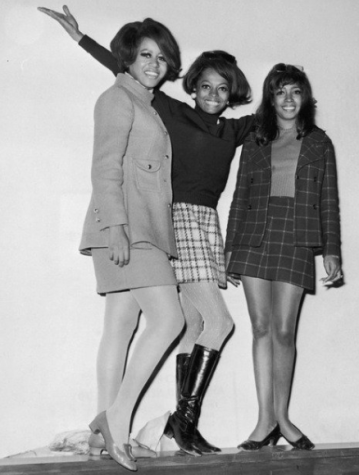
Image Courtesy of @peterkidder via Twitter
Now rock music, although it did have a large impact, was split into different categories.
Surf Rock, psychedelic, roots and hard rock were the more well known of the sub-genres.
The sixties was a decade in which music festivals flourished, especially at the end of the decade.
The Monterrey Pop Festival took place in 1967 and featured some of the most popular rock musicians of the time and was one of the first heavily attended rock festivals.
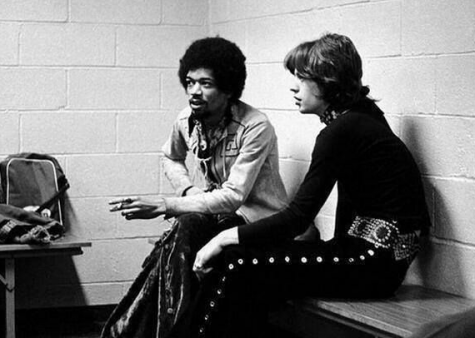
Image Courtesy of @historyinmoment via Twitter
Many of the most popular acts of the decade had their first major American appearance at this festival like Jimi Hendrix, Janis Joplin and The Who.
The Woodstock Music and Art Fair of 1969 represents one of the most iconic events of the sixties and is thought of as the culmination of the social revolution that took place during those times.
It was a free concert that lasted for three days and showcased some of the most iconic musicians of the time.
It is thought to have exemplified the popularity of the hippie counter-culture with an estimated 500,000 attendees reveling in free love, peace and rock music.
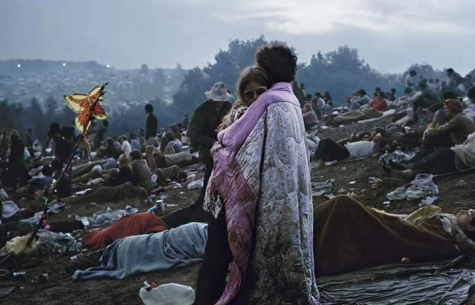
Image Courtesy of @Mindlemonj via Twitter
“The 60s brought music to the world that showed people’s opinions in a new way. Music was able to express the protests and the anger that society dealt with and was able to make it so that everyone could understand it,” said Gaidis. “I feel like modern music needs more of that because there are a lot of things wrong with the world, and we need to share our voice.”
The 60s were a time of protest, peace, love, harmony and pure psychedelic nature that still is influencing the music of today and the future.



